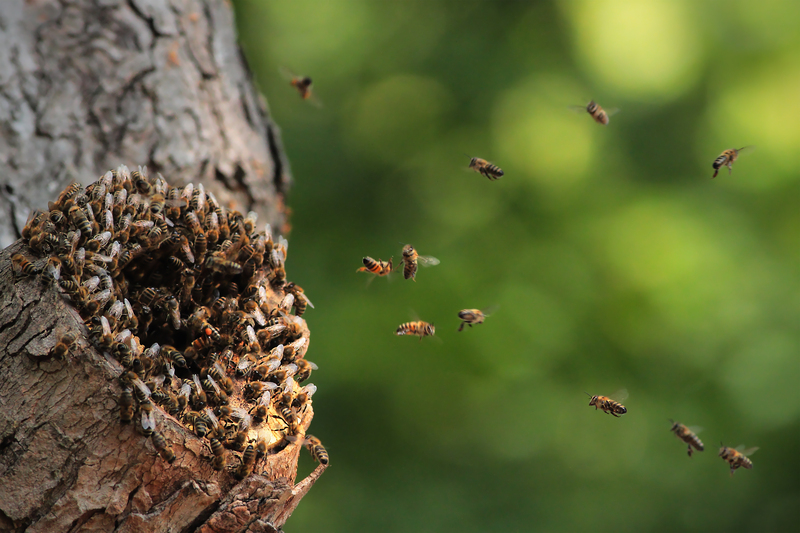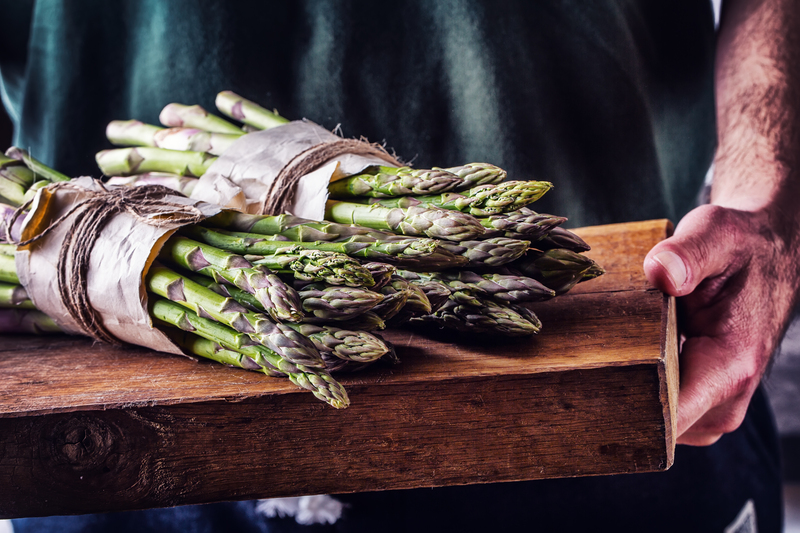Embrace nature with these 9 essential gardening tips for new gardeners
Posted on 29/05/2025
Embrace Nature With These 9 Essential Gardening Tips for New Gardeners
Are you ready to connect with the outdoors, enhance your well-being, and beautify your surroundings? Starting a garden is one of the most rewarding hobbies you can embark upon. Whether you dream of lush flowers, homegrown herbs, or a vibrant vegetable patch, learning the basics is essential to ensuring your success. If you're a beginner, don't worry! We're sharing nine essential gardening tips for new gardeners to help you nurture your green thumb and create a flourishing garden.
Why Embrace Nature Through Gardening?
Gardening isn't just about growing plants; it's about embracing nature, fostering mindfulness, and reaping countless health benefits. Studies show that gardening can reduce stress, boost your immune system, and improve your mood--plus, there's nothing quite like harvesting your own homegrown produce. But perhaps most importantly, gardening allows you to form a deep, tangible connection with the earth.

9 Essential Gardening Tips for New Gardeners
1. Start With the Right Location
The success of any garden depends on its location. Before planting, analyze the space you have available and take note of how much sunlight your chosen spot receives during the day.
- Sunlight: Most vegetables and many flowers need at least 6-8 hours of direct sunlight each day.
- Accessibility: Choose a spot that's easy to reach for watering, weeding, and harvesting.
- Proximity: The closer your garden is to your home, the more likely you are to care for it regularly.
Tip: If yard space is limited, consider container gardening on a balcony, patio, or even windowsills.
2. Know Your Climate and Soil
Understanding your local climate and soil type is crucial for new gardeners. Your local weather and soil conditions will dictate what plants will thrive in your area.
- USDA Hardiness Zones: Find out which plants are suitable for your zone using the USDA Hardiness Zone map.
- Soil Test: Perform a simple soil test (or get a kit from a garden center) to check pH and nutrient levels.
- Soil Structure: Good garden soil should be dark, crumbly, and rich in organic matter.
Pro Tip: Amending your soil with compost can vastly improve its quality and support healthier plant growth.
3. Start Small and Gradually Expand
Don't try to do too much, too soon. For beginner gardeners, it's best to start with a manageable plot--even a few containers can be perfect for beginners. This approach lets you focus on learning the basics and reduces the chances of feeling overwhelmed.
Begin with:- 3-5 different types of easy-to-grow plants or vegetables
- Herbs like basil, cilantro, or mint in small pots
- Simple flowers such as marigolds, petunias, or sunflowers
Remember: Mastering a small garden will prepare you for larger gardening projects in the future.
4. Choose the Right Plants
One of the top basic gardening tips for beginners is to select plants that match your climate, soil, and experience level. Check for disease-resistant varieties and plants suited to your local conditions.
- Vegetables: Lettuce, radishes, beans, and tomatoes are great starter crops.
- Herbs: Basil, chives, parsley, and oregano thrive even with minimal care.
- Flowers: Marigolds, zinnias, and calendulas are beginner-friendly and attract pollinators.
Pro Suggestion: Check labels for sunlight and water requirements before purchasing plants or seeds.
5. Master Watering Techniques
Water is essential for every living plant, but too much or too little can spell disaster. Here are essential watering tips for new gardeners:
- Early Morning Watering: Water your plants early in the day to maximize absorption and minimize evaporation.
- Deep, Infrequent Watering: Encourage deep root growth by watering thoroughly, but not daily.
- Avoid Wet Foliage: Wet leaves can invite disease; always water at the base of the plant.
- Check Soil Moisture: Stick your finger about an inch into the soil--if it feels dry, it's time to water.
Avoid common mistakes: Overwatering can cause root rot, while underwatering leads to wilted plants. Observe your garden's needs and adjust accordingly.
6. Feed Your Plants With the Right Fertilizer
Plants need nutrients to grow strong and healthy. Your soil may not provide everything your plants need, so supplementing with fertilizer is often essential.
- Organic options: Compost, manure, bone meal, and fish emulsion nourish plants and improve soil health.
- Chemical fertilizers: These give a quick nutrient boost but should be used sparingly--always follow label instructions.
- Frequency: Generally, fertilize at the start of planting and once during the growing season. Avoid over-fertilizing.
Extra tip: Many new gardeners overlook the power of mulching! Mulch helps retain moisture, suppress weeds, and regulate soil temperature.
7. Manage Weeds and Pests Effectively
Healthy gardens attract all sorts of life, but not all visitors are welcome. Weeds rob your plants of light, water, and nutrients. Meanwhile, pests can damage your hard work.
- Mulch: Apply a 2-3" layer of mulch to keep weeds at bay.
- Hand Weeding: Pull weeds consistently, especially when they're small.
- Natural Pest Control: Invite beneficial insects (like ladybugs), use neem oil sprays, or try companion planting.
- Inspect frequently: Get into the habit of checking plants for pests or disease signs, and act promptly if issues arise.
Did you know? Companion planting--planting certain crops together--can naturally deter harmful insects.
8. Practice Patience and Consistency
Gardening teaches patience like few other hobbies. Plants grow at their own pace, and results won't be immediate. Be consistent with your care routines--including watering, weeding, and feeding.
- Track progress: Keep a gardening journal to note what's working and what isn't.
- Learn from mistakes: Every failed plant is a chance to grow your skills!
Over time, your efforts will pay off with a garden that reflects your love of nature and newfound expertise.
9. Enjoy and Share Your Garden
At last, take time to enjoy the beauty and bounty of your garden. Harvest your produce, make bouquets of your flowers, or simply soak up the serenity that only nature provides.
- Connect with other gardeners: Join a local community garden or online gardening group for extra support and inspiration.
- Share harvest: Give away extra herbs, veggies, or flowers to family and friends--spreading the joy of gardening even further.
- Reflect and plan: After your first season, think about what worked well and what you'd like to try next year.
Gardening is a continuous journey of learning and discovery. The more you embrace nature, the richer your gardening experience will be.

Bonus: Frequently Asked Questions for New Gardeners
What are some easy-to-grow plants for beginners?
Herbs: Basil, parsley, and mint. Vegetables: Lettuce, radishes, and green beans. Flowers: Marigolds and sunflowers.
How much should I water my garden?
Most gardens require about an inch of water per week. Check the soil's moisture to guide your routines and adjust based on rainfall.
What's the best soil for beginners?
Rich, well-draining soil full of organic matter is ideal. Amend with compost regularly to maintain soil health for your essential garden plants.
How can I attract pollinators to my garden?
Plant a variety of native flowers and avoid using chemicals. Create habitats such as bee hotels or butterfly-friendly plants to welcome pollinators.
Final Thoughts: Grow With Nature Today
Embracing nature through gardening is much more than a hobby--it's a lifestyle. By applying these essential gardening tips for new gardeners, you'll be set on a rewarding journey of growth, both in your garden and within yourself. Remember, every seasoned gardener was once a beginner. With patience, practice, and a bit of curiosity, you'll soon create a natural oasis to love and share.
Ready to start your gardening adventure? Share your progress, tips, and questions in the comments below, and let's grow together!
- Keyword variations used: embrace nature, essential gardening tips, new gardeners, gardening basics, beginner gardening tips, nurture your garden, green thumb, gardening advice.

